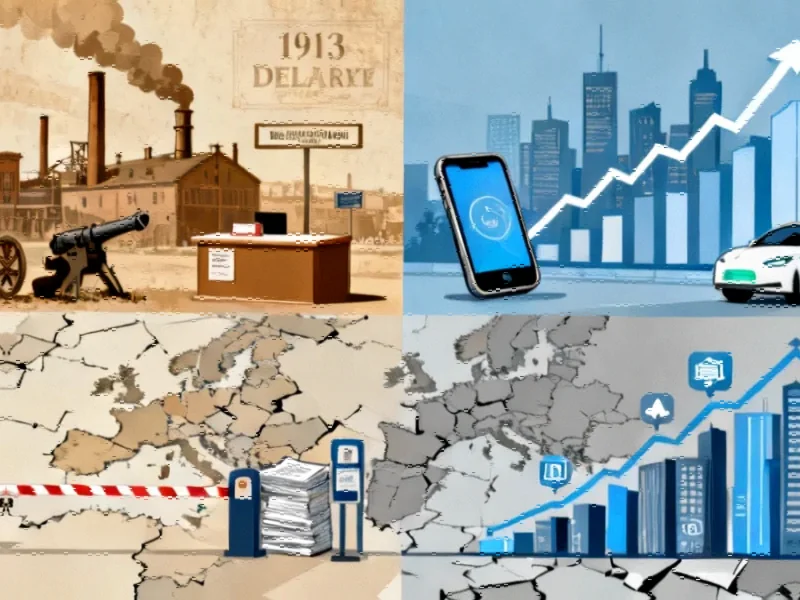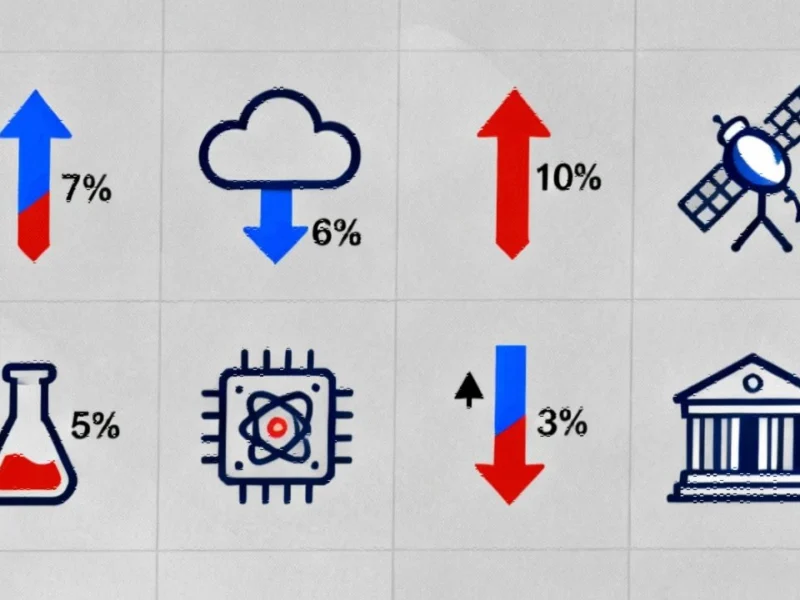The Delaware Model: America’s Corporate Advantage
In 1913, Delaware made a strategic decision that would ultimately reshape the global economy, according to historical business analysis. When neighboring New Jersey tightened corporate regulations, Delaware responded by creating a simplified registration system and stripping away bureaucratic hurdles. What began as an effort to attract steam engine and gunpowder manufacturers evolved into the foundation for today’s most transformative startup companies and technological innovations.
Analysts suggest this “Delaware Inc” model provided the corporate vehicle that underpinned revolutionary technologies from search engines to smartphones and electric vehicles. The system allows American companies to raise capital and scale across state lines without encountering the regulatory fragmentation that characterizes the European business landscape.
Europe’s Startup Competitiveness Crisis
The contrast between American and European scaling capabilities reveals a sobering reality, according to reports from MIT researchers. Publicly traded companies founded in Europe over the past 50 years collectively reached approximately $420 billion in valuation, while their U.S. counterparts approached $30 trillion—nearly 70 times greater. All six American companies with market capitalizations exceeding $1 trillion were established within the past half-century, while Europe has produced none.
Sources indicate this disparity stems from fundamental structural differences within the European Union‘s business environment. While Europe has demonstrated remarkable capacity for producing exceptional entrepreneurs and global companies like Adyen, Spotify, and Revolut, founders face enormous barriers when scaling across national borders.
The Fragmentation Problem
According to industry analysis, the core issue lies in Europe’s lack of a unified corporate framework. A startup with a Delaware incorporation can expand seamlessly across the United States, while European founders must establish separate legal entities in each country, navigate varying regulatory and employment codes in multiple languages, and explain to employees why compensation structures differ between Madrid and Munich.
The report states that this fragmentation creates “stifled momentum, unrealized potential, and an artificial limit on startups’ chances of success.” Former European Central Bank President Mario Draghi’s landmark analysis reportedly found that Europe captures just 5% of global venture capital, compared to America’s 52%, with VC investment in the EU representing just 0.05% of GDP versus 0.32% in the U.S.
The EU-INC Solution
Momentum is building behind the concept of “EU-INC”—a pan-European corporate entity that would set new global standards for business formation, according to sources familiar with the initiative. This framework would enable founders to incorporate quickly, access standardized investment documents recognized across the continent, implement EU-wide employee stock options, and scale across 450 million consumers without jurisdictional hurdles.
The grassroots movement has reportedly garnered over 18,000 signatories and support from Europe’s most successful entrepreneurs and investors, including leadership from Mistral, DeepMind, Stripe, Supercell, Index Ventures, and Y Combinator. EU Commission President Ursula von der Leyen has committed to reform, though analysts suggest some Brussels policymakers favor incremental measures rather than comprehensive solutions.
Broader Industry Context
The push for regulatory harmonization in Europe comes amid wider banking sector turbulence and evolving global manufacturing trends. Meanwhile, renewable energy developments and industrial automation face their own regulatory challenges across European markets.
Technology sector observers note that recent technology innovations often emerge from environments with streamlined regulatory frameworks. Similarly, related innovations in governance and policy continue to influence business formation approaches worldwide.
A Critical Juncture for European Innovation
According to venture capital partners and industry analysts, Europe stands at a pivotal moment. The continent that helped pioneer internet technology now risks watching American companies scale with ease while European founders struggle against structural disadvantages. The proposed EU-INC framework represents what sources describe as Europe’s best opportunity to become “the undisputed seedbed of innovation—the best place in the world to found, fund, and scale a company.”
As one report concludes, Europe doesn’t need additional directives or committees, but rather its own equivalent to Delaware‘s streamlined corporate system—and it needs it urgently to compete in the global innovation race. The success of this initiative could determine whether European startups can overcome fragmentation and achieve their full potential in the coming decades.
This article aggregates information from publicly available sources. All trademarks and copyrights belong to their respective owners.
Note: Featured image is for illustrative purposes only and does not represent any specific product, service, or entity mentioned in this article.



